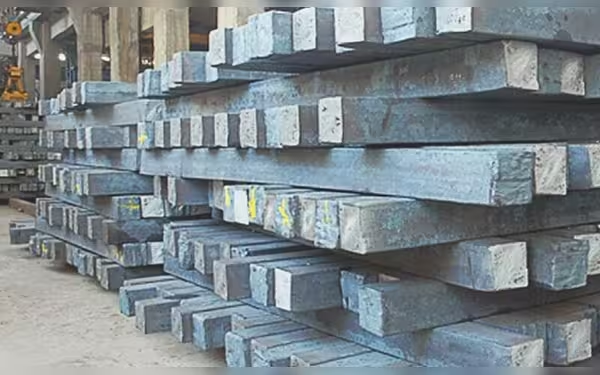Saturday, November 16, 2024 09:43 PM
Amreli Steels Suspends Operations at Karachi Facility Due to Economic Challenges
- Amreli Steels halts 30% production capacity at Karachi facility.
- Economic challenges lead to temporary suspension of operations.
- TOMCL secures $12 million contract to supply beef to China.
 Image Credits: dawn
Image Credits: dawnAmreli Steels suspends operations at its Karachi facility due to economic challenges, while TOMCL secures a $12 million contract with China.
KARACHI: In a significant move reflecting the current economic climate, Amreli Steels Ltd (ASL) has announced the temporary suspension of operations at its oldest manufacturing facility, the Site Rolling Mills (SRM) in Karachi. This facility accounts for 30% of the company’s total production capacity. The decision comes amid a backdrop of uncertainty in both the economic and political spheres of Pakistan, prompting the board of directors to take this precautionary step.
In a stock filing made on Tuesday, ASL indicated that the situation would be reassessed in six months, with the possibility of reopening the facility if conditions improve. During this interim period, the company plans to maintain operations at its Dhabeji facility, which represents 70% of its production capacity. This strategy aims to ensure that the demand for steel is met, both currently and in the future.
The decision to halt operations at SRM is not taken lightly. ASL has cited significant economic challenges that are currently plaguing the documented sector. These challenges are compounded by a variety of factors, including a decline in demand for steel bars, soaring utility costs—especially electricity—high interest rates, an unbalanced tariff structure, heavy tax burdens, and rampant smuggling. All these elements contribute to an environment of unfair competition, severely disrupting the market equilibrium.
In a related development, the Organic Meat Company Ltd (TOMCL) has secured a substantial contract to supply frozen cooked beef meat to China. Valued at $12 million, this contract is poised to be a major milestone for the company, expanding its reach into the burgeoning Chinese market. Shipments are expected to commence shortly, aligning with TOMCL’s strategy to enhance its export operations and penetrate new markets, particularly in Asia. The company anticipates that this contract will positively impact its revenue and profitability during the fiscal year 2025.
Meanwhile, Mari Petroleum Company Ltd (MPCL) has made headlines by approving an investment of Rs10 billion in a proposed wholly-owned subsidiary. This new venture will focus on data centers, cloud computing, artificial intelligence, and other emerging technologies, including those in the petroleum and mining sectors. This investment reflects a forward-thinking approach, aiming to harness the potential of new technologies in a rapidly evolving market.
As the Pakistan Stock Exchange (PSX) gears up for another initial public offering (IPO), BF Biosciences is set to make its public debut by offering 25 million shares through a book-building process on September 25-26. The floor price is set at Rs55, with a cap of Rs77 per share. Post-IPO, the market capitalization of BF Biosciences is expected to range between Rs4.9 billion and Rs6.8 billion. Notably, around 30% of the company’s product portfolio is categorized as non-essential, while the remaining is deemed essential. The proceeds from the IPO will be directed towards purchasing raw and packing materials, acquiring plant and machinery, and obtaining export certifications, among other objectives.
The current economic landscape in Pakistan presents both challenges and opportunities for companies like Amreli Steels, TOMCL, and others. While the decision to suspend operations at SRM underscores the difficulties faced by the steel industry, the successful contracts and investments by other companies highlight the potential for growth and expansion in different sectors. As the situation evolves, stakeholders will be keenly watching how these developments unfold and what they mean for the broader economy.













